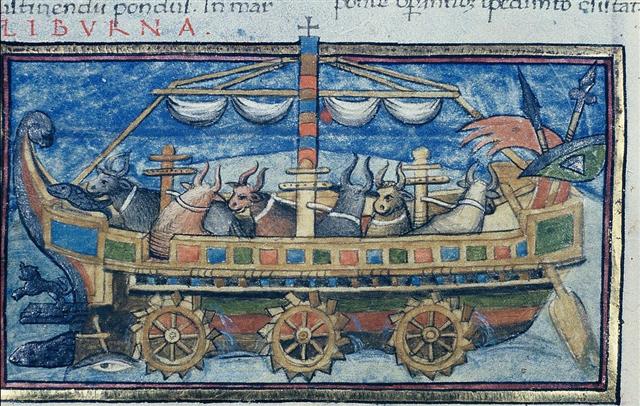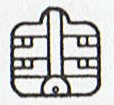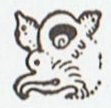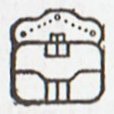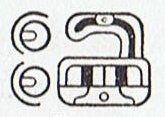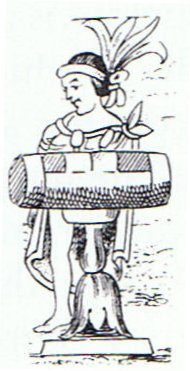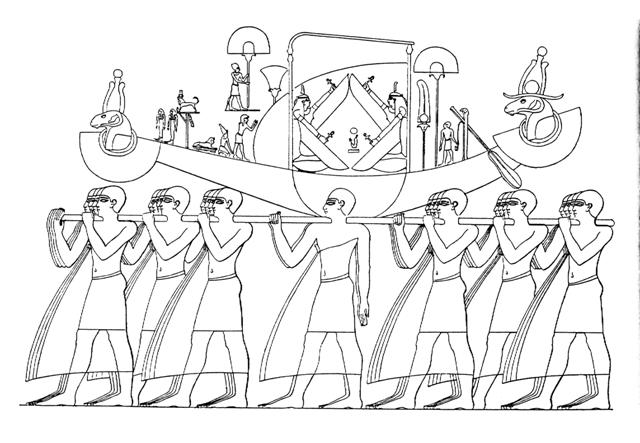Once again. The reason for the priests on Hawaii having stated that new year was beginning 'in the month September-October, while the old year still had two months to run', could have been that anciently this time of the year was identified with the time for the Harvesting of the old year: ... A connection between the new year and the harvesting of crops reminiscent of an earlier period when the evening appearance of the Pleiades in the east more nearly coincided with the arrival of the Sun at the autumnal equinox is seen in the prolonged Hawaiian ceremonies ushering in the new year. But in the month September-October, while the old year still had two months to run, announcement was made to the people by placing a certain signal outside the temple walls that the new year had begun ... Due to the precession Sun came earlier and earlier in spring as measured against the fixed stars and therefore he also had to leave earlier and earlier - because his life span was determined and could not increase. ... The winnowing-fan (λίκνον [líknon], also meaning a 'cradle') featured in the rites accorded Dionysus and in the Eleusinian Mysteries: 'it was a simple agricultural implement taken over and mysticised by the religion of Dionysus', Jane Ellen Harrison remarked. Dionysus Liknites ('Dionysus of the winnowing fan') was wakened by the Dionysian women, in this instance called Thyiades, in a cave on Parnassus high above Delphi; the winnowing-fan links the god connected with the mystery religions to the agricultural cycle, but mortal Greek babies too were laid in a winnowing-fan. In Callimachus' Hymn to Zeus, Adrasteia lays the infant Zeus in a golden líknon, her goat suckles him and he is given honey. In the Odyssey, the dead oracle Teiresias tells Odysseus to walk away from Ithaca with an oar until a wayfarer tells him it is a winnowing fan, and there to build a shrine to Poseidon ...
If the oar in question refers to the Steering Oar at Canopus, then the Ship of the Sun could meaure 285 (*OCTOBER 12) - 107 (*APRIL 17) = 178 days. However, day *366 (for the little one who measured only ¼) ought to be placed at spring equinox and then 285 (*OCTOBER 12) - 108 (*APRIL 17) = 177 = 6 * 29½:
The beautiful little Rei in Ga1-30 could have indicated the fraction ¼ in the Julian measure for a year (365¼). ... Everyone has once read, for it comes up many times in literature, of that pilot in the reign of Tiberius, who, as he was sailing along in the Aegean on a quiet evening, heard a loud voice announcing that 'Great Pan was dead'. This engaging myth was interpreted in two contradictory ways. On the one hand, it announced the end of paganism: Pan with his pipes, the demon of still sun-drenched noon, the pagan god of glade and pasture and the rural idyll, had yielded to the supernatural. On the other hand the myth has been understood as telling of the death of Christ in the 19th year of Tiberius: the Son of God who was everything from Alpha to Omega was identified with Pan = 'All'. Here is the story, as told by a character in Plutarch's On why oracles came to fail (419 B-E): The father of Aemilianus the orator, to whom some of you have listened, was Epitherses, who lived in our town and was my teacher in grammar. He said that once upon a time in making a voyage to Italy he embarked on a ship carrying freight and many passangers. It was already evening when, near the Echinades Islands, the wind dropped and the ship drifted near Paxi [cfr Mayan Paxih]. Almost everybody was awake, and a good many had not finished theire after-dinner wine.
Suddenly, from the island of Paxi was heard the voice of someone loudly calling Thamus, so that all were amazed. Thamus was an Egyptian pilot, not known by name to many on board. Twice he was called and made no reply, but the third time he answered; and the caller, raising his voice, said, 'When you come opposite to Palodes, announce that Great Pan is dead.' On hearing this, all, said Epitherses, were astounded and reasoned among themselves whether it were better to carry out the order or to refuse to meddle and let the matter go. Under the circumstances Thamus made up his mind that if there should be a breeze, he would sail past and keep quiet, but with no wind and a smooth sea about the place he would announce what he had heard. So, when he came opposite Palodes, and there was neither wind nor wave, Thamus from the stern, looking toward the land, said the words as he heard them: 'Great Pan is dead'. Even before he had finished there was a great cry of lamentation, not of one person, but of many, mingled with exclamations of amazement. As many persons were on the vessel, the story was soon spread abroad in Rome, and Thamus was sent for by Tiberius Caesar. Tiberius became so convinced of the truth of the story that he caused an inquiry and investigation to be made about Pan; and the scholars, who were numerous at his court, conjectured that he was the son born of Hermes and Penelope ...
... the strange hologram of archaic cosmology must have existed as a conceived plan, achieved at least in certain minds, even as late as the Sumerian period when writing was still a jealously guarded monopoly of the scribal class. Such a mind may have belonged to a keeper of records, but not of the living world, still less of the living thought. Most of the plan was never recorded. Bits of it reach us in unusual, hesitant form, barely indicated, as in the wisdom and sketches of Griaule's teacher, Ogotemmêli, the blind centenarian sage. In the magic drawings of Lascaux, or in American Indian tales, one perceives a mysterious understanding between men and other living creatures which bespeaks of relationships beyond our imagination, infinitely remote from our analytical capacity. 'From now on', said Father Sun, grieving over Phaeton, his fallen child, 'you shall be Mink'.
What meaning can this have for us? For such an understanding between men and men, and other living creatures too, we would need the kind of help King Arthur had at hand: 'Gwryr Interpreter of Tongues, it is meet that thou escort us on this quest. All tongues hast thou, and then canst speak all languages of men, with some of the birds and beasts.' This ability was also attributed to Merlin and Gwyon, those masters of cosmological wisdom whose names resound through the legends of the Middle Ages. In general, all fabulous communication was conceived as having such a range, not merely the Aesopian fable with is flat, all-too-wordly wisdom. Much of this book has been peopled with the inhabitants of a Star Menagerie of profoundly meaningful animal characters. The forms of animal life have varied from the Fishes who turned into hairy Twins to the remarkable succession of doglike creatures occurring around the world from Ireland to Yucatán. All of these animals have been of great significance, and each was invested with key functions in cosmological myth. It would be possible, for example, to prepare a most informative edition of the Romance of Reynard Fox illustrated entirely with reproductions from Egyptian and Mesopotamian ritual documents. For it is likely that these documents represent the last form of international initiatic language, intended to be misunderstood alike by suspicious authorities and the ignorant crowd. In any case, the language forms an excellent defense against the kind of misuse which Plato speaks about with surprising earnestness in Phaedrus (274D-275B). At the point in question, Thoth/Hermes is feeling very proud of himself for having invented letters, and he claims that the alphabet will make the Egyptians wiser and improve their memory. Plato has the god Thamus, 'king of all Egypt', speak to him: 'Most ingenious Thoth', said the god and king Thamus, 'one man has the ability to beget arts, but the ability to judge of their usefulness or harmfulness to their users belongs to another; and now you, who are the father of letters, have been led by your affection to ascribe to them a power the opposite of that which they really possess. For this invention will produce forgetfulness in the minds of those who learn to use it, because they will not practise their memory. Their trust in writing, produced by external characters which are no part of themselves, will discourage the use of their own memory within them. You have invented an elixir not of memory, but of reminding; and you offer your pupils the appearance of wisdom, not true wisdom, for they will read many things without instruction and will therefore seem to know many things, when they are for the most part ignorant and hard to get along with, since they are not wise, but only appear wise.' Now that Plato's apprehensions have become fact, there is nothing left of the ancient knowledge except the relics, fragments and allusions that have survived the steep attrition of the ages ...
|
|||||||||||||||||||||||||||||||||||||||||||||||||||||||||||||||||||||||||||||||||||||||||||||||||||||||||||||||||||||||||||||||||||||||||||||||||||||||||
